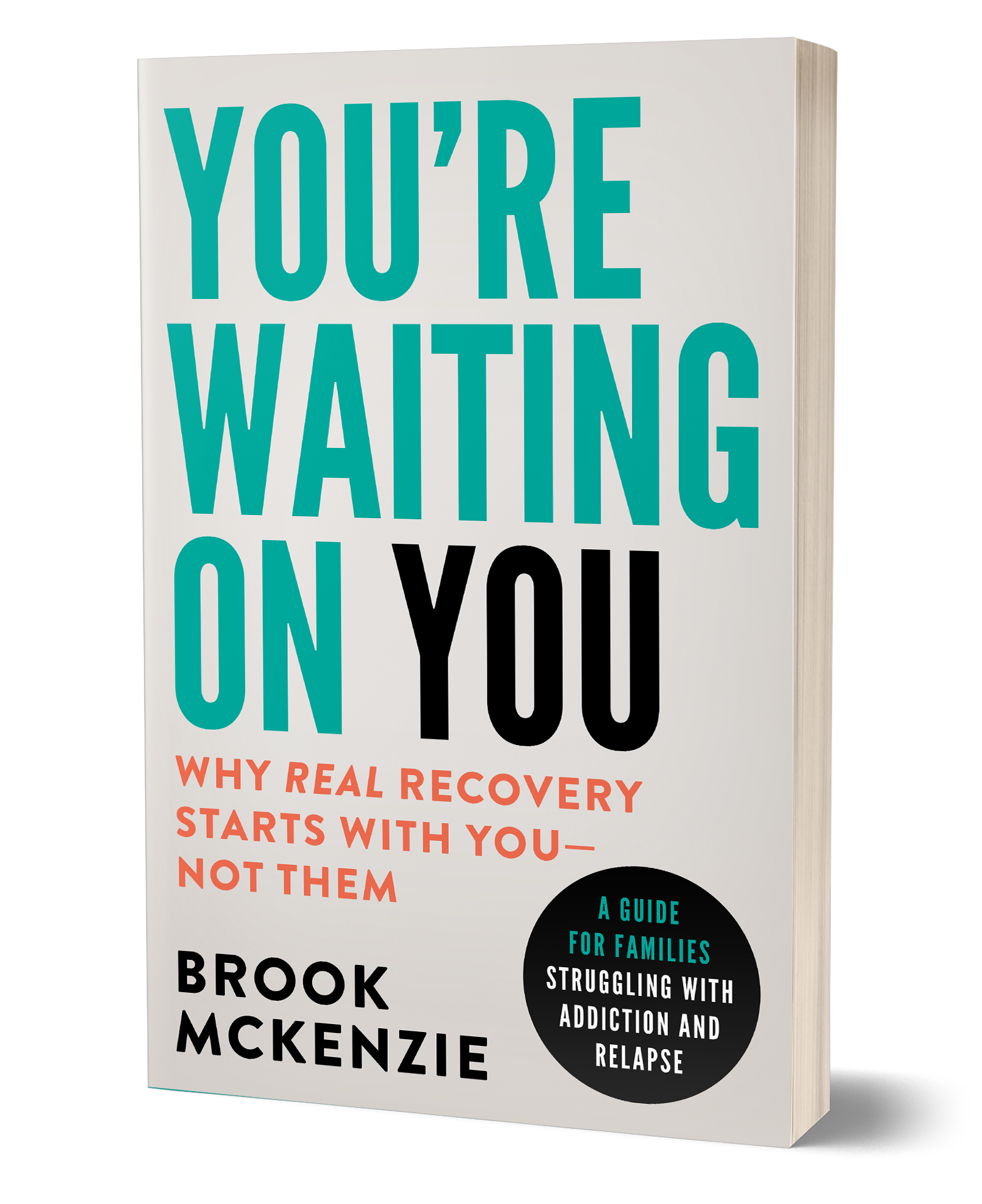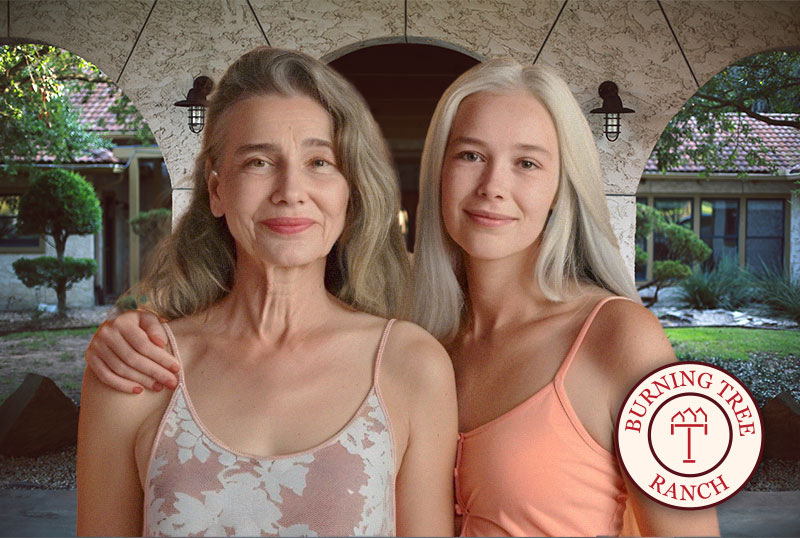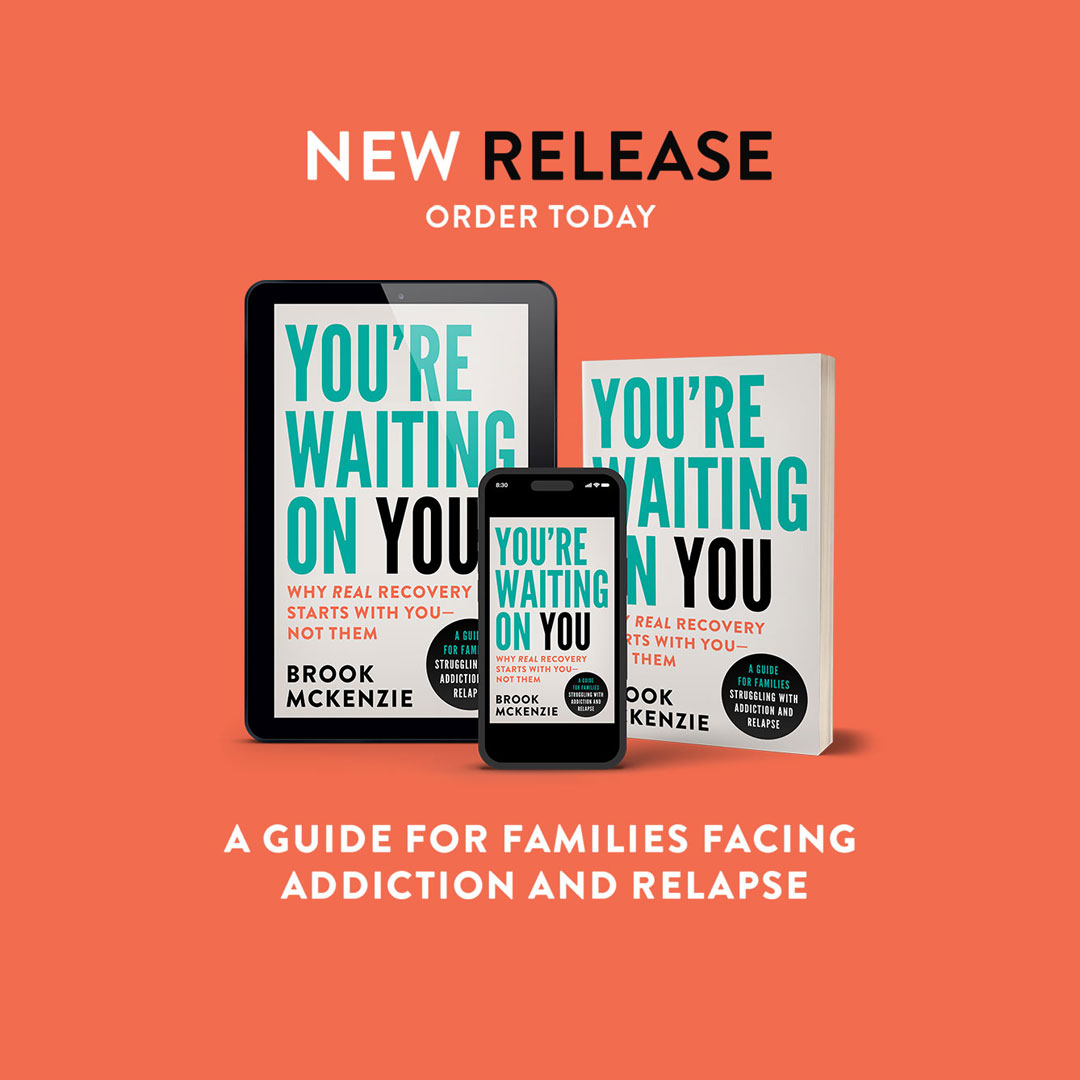By Brook McKenzie, author of You’re Waiting on You
Addiction doesn’t just impact one person — it reshapes entire families. Every relapse, broken promise, and act of kindness in frustration echo through spouses, parents, siblings, and children.
In You’re Waiting on You, I write about the essential truth: we can’t control another person’s recovery, but we can transform the relational environment around them. This post offers families a pathway toward long-term relapse prevention and relational healing, rooted in heart and research.
Before we begin, let me say: this is not prescriptive or punitive. You can take steps to rebuild trust, clarity, and hope — whether your family is in early recovery or years in.

Why a Family-Centered Relapse Prevention Matters
Relapse doesn’t usually happen in a vacuum. There are many contributors hiding within the relational system: patterns of conflict, unspoken hurts, inconsistent boundaries, and cycles of blame. When families shift how they respond, the risk of relapse can decrease significantly.
- Studies show that family therapy interventions reduce substance use and strengthen relational functioning. (Wiley Online Library)
- Incorporating loved ones into recovery—through education, communication, and shared accountability—consistently produces better outcomes. (PMC)
- In a newer framing, recovery experts are moving from “relapse prevention” toward “recovery protection”—focusing not just on avoiding return to use but on cultivating a life that sustains wellness. (Taylor & Francis Online)
In short: your relational health is not just collateral — it’s central.

Enabling Behaviors Within Family Systems
Often, families miss the enabling behaviors that silently fuel relapse. Recognizing them is step one.
- Emotional volatility — yelling, withdrawal, passive aggression
- Mixed messages / broken promises — “I trust you,” followed by secret checking
- Caretaking guilt / overcompensation — rescuing or rescuing-then-resenting
- Unresolved pain or trauma — giving permission to avoid or to act out
As these patterns cycle, they build stress, shame, and chaos — the very conditions addiction can relapse into.
Steps to Shift from Chaos to Consistency
Recovery thrives in predictability, not crisis. Families can adopt structures and practices that stabilize relational life. We’ve provided this section as a roadmap.
Agree on communication norms
Keep it calm, brief, and truthful. No lecturing. No gaslighting.
Set clear, loving boundaries
Boundaries define where your responsibility ends. They aren’t punishment — they’re clarity.
Create reliable rituals
Weekly check-ins, family meetings, shared recovery tools (journals, accountability apps).
Model your own healing
When family members do their work (therapy, support groups, self-care), the system shifts.
Bring in outside support
Family therapy, coaching, or structured programs can provide safe space and guidance.
When consistency replaces chaos, predictability becomes trust, and trust builds security.

Rebuilding Trust After Relapse (Phase-by-Phase)
Rebuilding trust isn’t a one-time event. It’s earned in the small, repeatable moments. Here’s a simple phased approach:
Phase 1: Acknowledgment
Everyone names the harm without blame. No denial, no minimization.
Phase 2: Accountability
The person in recovery commits to transparency; family members commit to following through.
Phase 3: Alignment
Daily life begins to reflect shared values: honesty, reliability, respect, forgiveness.
Small actions repeated over time strengthen the new relational pattern.
Healing Together: Beyond Prevention to Connection
Relapse prevention is critical—but true healing is deeper. Here’s what happens when families move beyond crisis mode to relational renewal:
- Differentiating forgiveness vs permissiveness
- Grieving losses without blame
- Reconnecting around shared purpose or family identity
- Building rituals of belonging and safety
The shift: from “protecting ourselves” to “growing together.”
How You’re Waiting on You Supports Families
You’re Waiting on You was written for families in the gray zone — between desperation and hope.
The book helps families to:
- Discover when help becomes harm
- Reclaim peace while staying compassionate
- Build resilient relational practices and boundaries
If you’re ready to go deeper, you can explore more about the book (and resources) at brookmckenzie.com.
Final Thoughts & Encouragement
Relapse prevention is not about control — it’s about relational repair, consistency, and mutual growth.
As you tend your side of the street, you often become the very environment that nurtures long-term change.
You are not alone. Healing is possible, even when recovery feels fragile.
“Sometimes the miracle isn’t that your loved one changed — it’s that you finally did.”
— Excerpt, You’re Waiting on You
You are not alone. Healing is possible, even when recovery feels fragile.

